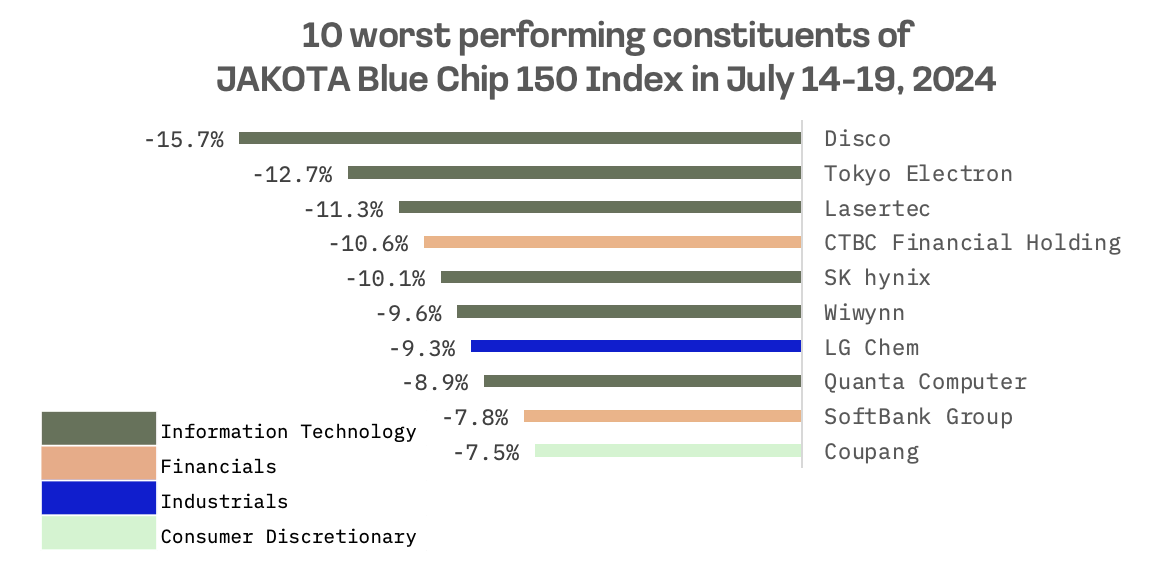Last week’s Jakota markets:
- Japan’s Nikkei 225 Index fell 2.7%, hit by tech stock slump amid concerns over U.S. chip export restrictions to China
- South Korea’s KOSPI retreated 2.2%, with initial gains from Trump related stocks offset by later profit taking and tech sector concerns
- Taiwan’s TAIEX Index plunged 4.4%, the weakest among Jakota markets, after Trump’s comments on Taiwan’s chip dominance
- The JAKOTA Blue Chip 150 Index lost 2.3%, with semiconductor stocks like Disco, Tokyo Electron and Lasertec hit particularly hard
Japan
The Nikkei 225 Index dropped 2.7% this week, with technology stocks slumping amid growing concerns over tighter U.S. restrictions on advanced semiconductor exports to China. This affected several Japanese chipmakers.
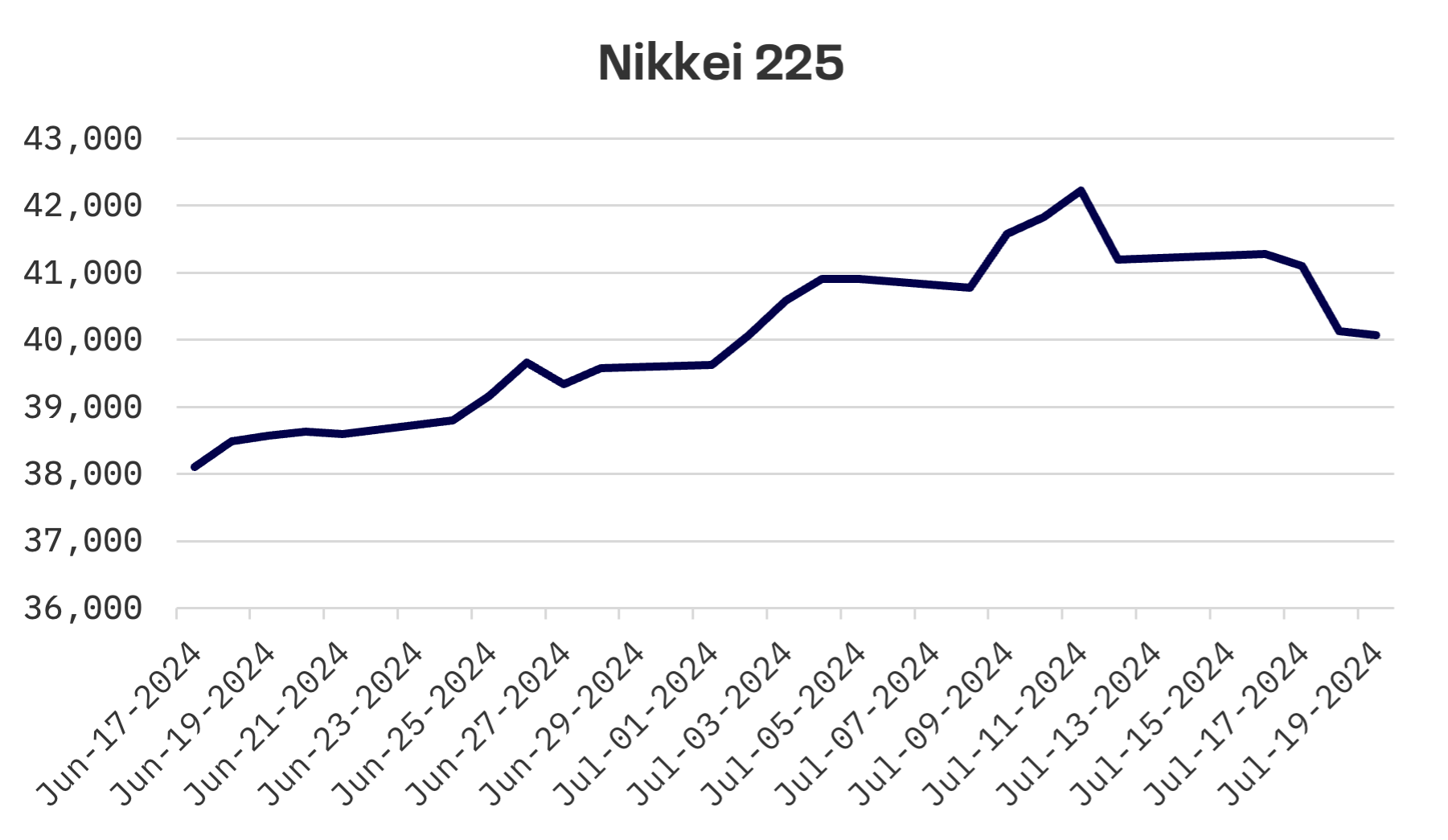
The yen slightly appreciated against the dollar, marking its second consecutive weekly gain following suspected yen buying interventions by the government. Japan’s top currency official, Masato Kanda, indicated that action might be necessary if speculators trigger excessive forex volatility. Authorities typically avoid promptly confirming currency interventions, with relevant data scheduled for release at the end of July.
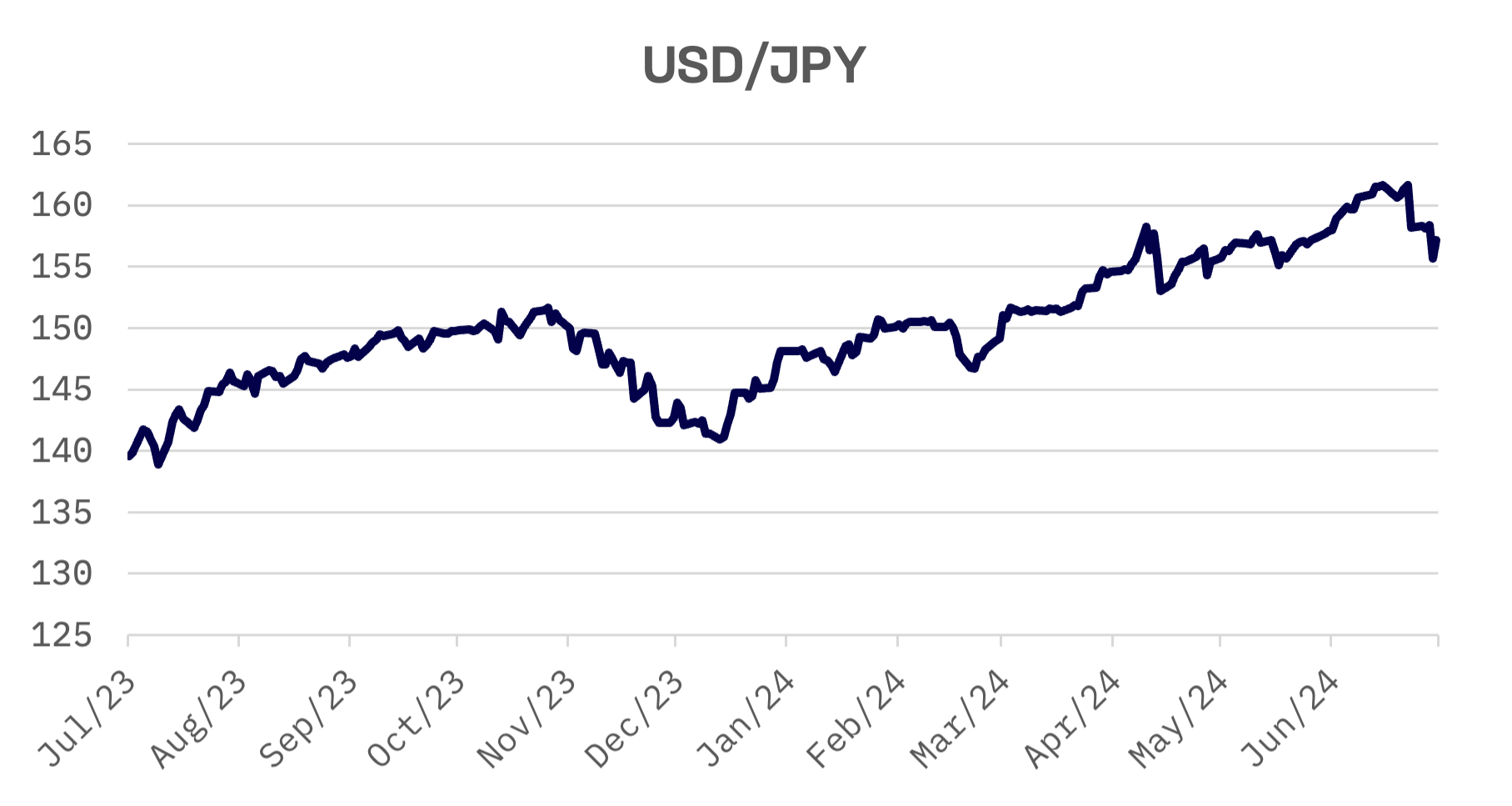
Japan’s nationwide core consumer price index (CPI) rose 2.6% year-over-year in June, up from 2.5% in May but slightly below the consensus estimate of 2.7%.
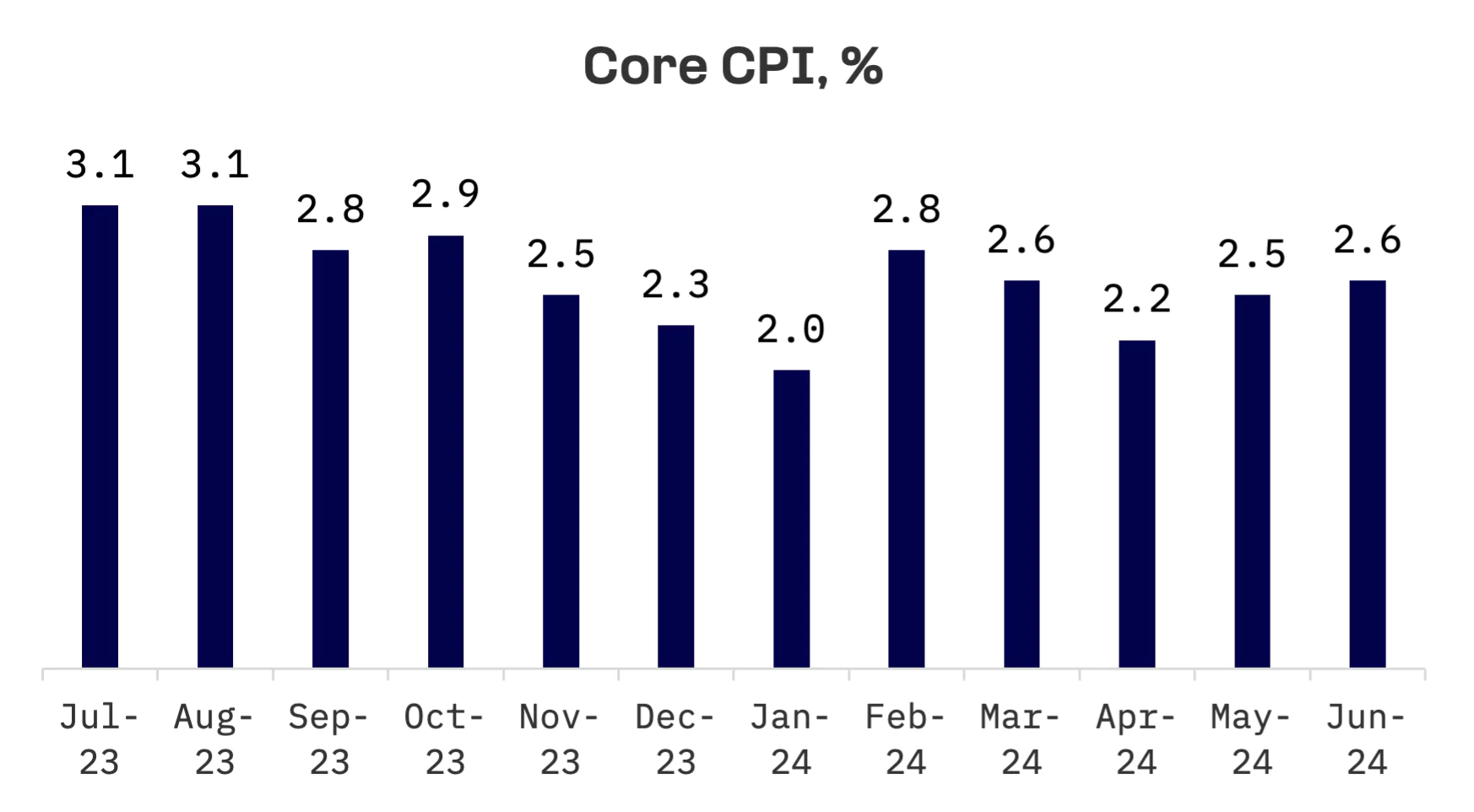
Japan’s economic fragility was underscored by the government lowering its GDP growth forecast for the fiscal year ending March 2025 to 0.9%, down from January’s 1.3% projection. This downgrade largely stems from sluggish domestic consumption amid rising import costs, exacerbated by the yen’s weakness. Looking ahead, the government forecasts demand led economic growth of 1.2% for the fiscal year beginning April 2025.
South Korea
The KOSPI Composite Index fell 2.2% this week, its second consecutive weekly decline. Market volatility was low, with the index remaining largely unchanged or showing small growth, except on Friday when profit taking led to a decline.
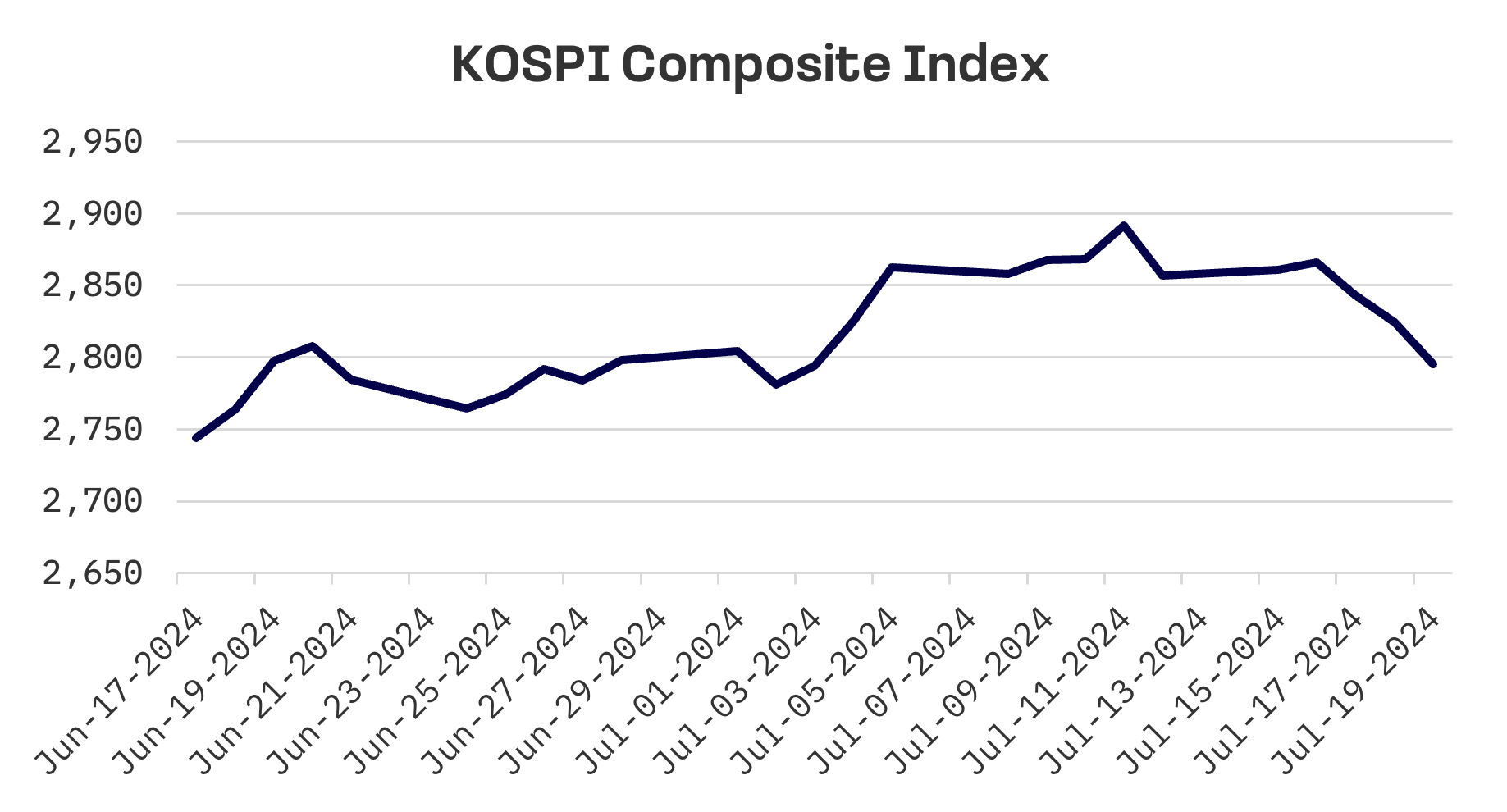
The week began positively as investors digested the aftermath of the assassination attempt on former U.S. President Donald Trump. The incident led more investors to bet on his potential victory in the upcoming presidential election, anticipated to result in increased protectionism and a stronger U.S. dollar. Investors rushed to stocks associated with the former president, including those in the construction, nuclear power and defense sectors. However, stocks declined later in the week due to profit taking and concerns about potential U.S. restrictions on chip sales to China, impacting tech stocks.
The International Monetary Fund (IMF) revised its 2024 growth forecast for South Korea to 2.5%, up 0.2 percentage points from April’s projection. The IMF cited stable global economic expansion, with South Korea’s economy rebounding due to rising exports, particularly robust global demand for semiconductors.
Taiwan
The Taiwan stock market showed the weakest performance among the Jakota markets, with the TAIEX Index falling 4.4% this week. Taiwanese shares, particularly in the technology sector, slumped after U.S. Republican presidential candidate Donald Trump claimed that Taiwan had seized 100% of U.S. chip business. The sell off was further fuelled by a Wall Street Journal report suggesting that the Biden administration might be contemplating tighter semiconductor trade restrictions between the U.S. and China.
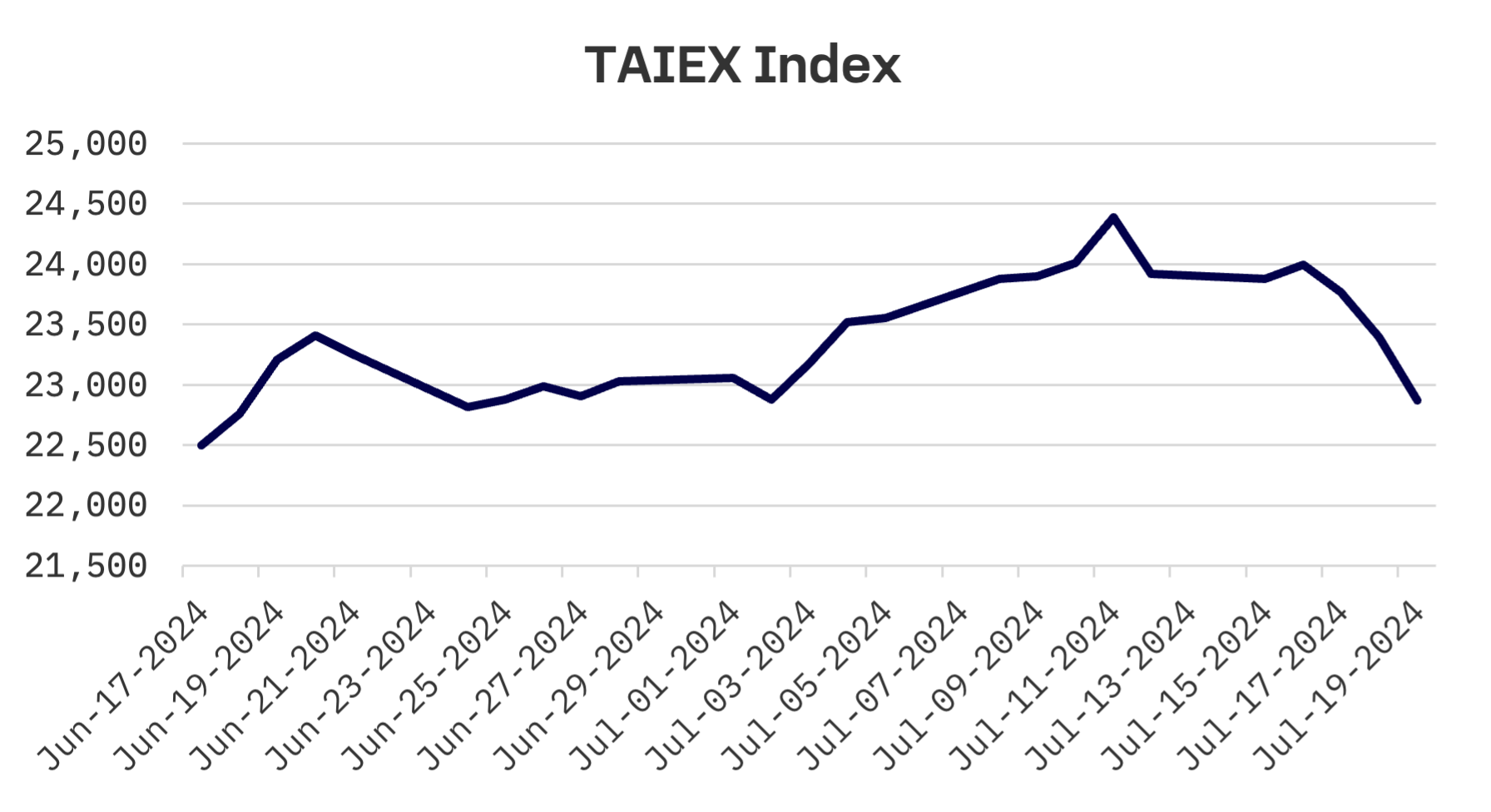
JAKOTA Blue Chip 150 Index
The JAKOTA Blue Chip 150 Index declined by 2.3% this week, with only 56 of 150 constituents exhibiting positive price trends.
Komatsu, a Japanese corporation specialising in construction, mining, forestry and military equipment, emerged as the top performing stock amid increased speculation about former President Trump’s potential victory in November. With Trump’s proactive stance on fiscal stimulus and Komatsu’s high overseas sales ratio of approximately 90%, primarily concentrated in North America, the company is seeing increased investor interest.
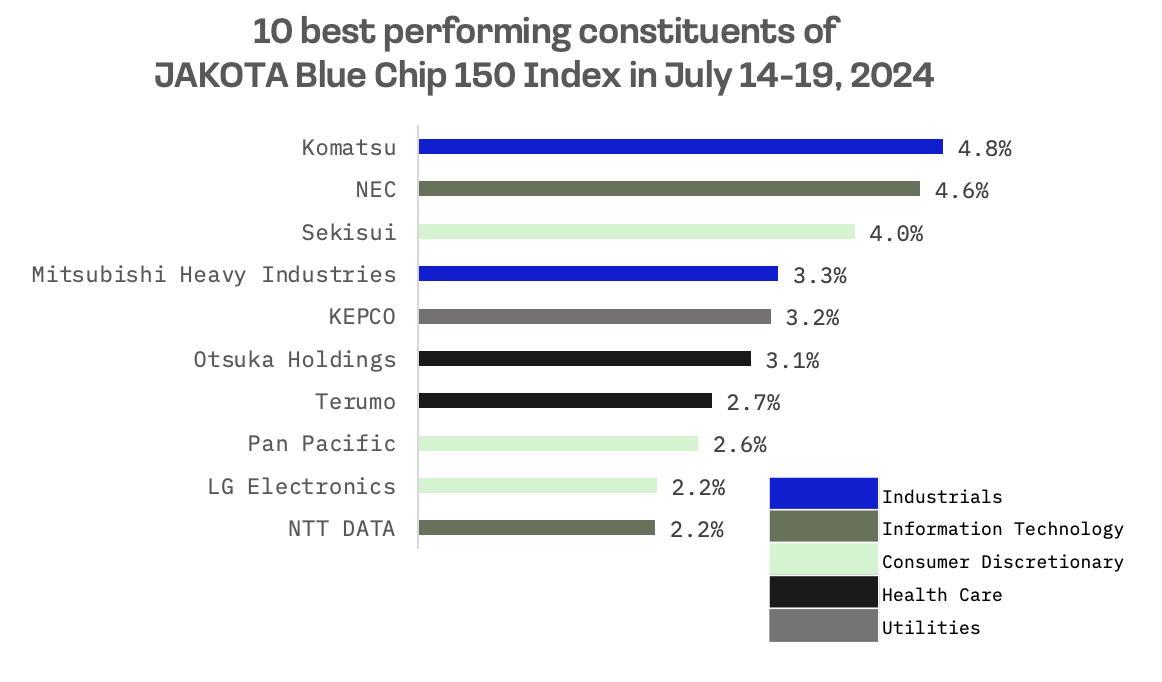
Semiconductor stocks faced pressure this week following comments by Donald Trump suggesting Taiwan had captured 100% of the U.S. chip business and should bear the cost of its own defense against China. An unconfirmed Bloomberg report added to concerns, indicating that the Biden administration might be considering severe restrictions on companies providing China with semiconductor technology access.
The fallout was significant for Japanese firms. Disco Corporation, a precision tool manufacturer, saw its shares plummet 15.7%. Tokyo Electron, a Japanese semiconductor firm, which some U.S. officials believe is giving China excessive access to advanced semiconductor technology, experienced a 12.7% decline. Lasertec, specialising in chip inspection equipment, fell 11.3%.
